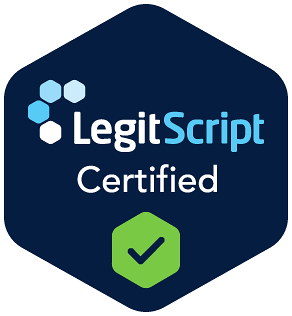On May 11th, 2023, the end of the COVID-19 Public Health Emergency will bring changes to Medicaid programs across the United States, including in Minnesota. Since the Public Health Emergency was declared on January 27th, 2020, it has been extended 11 times. As the Public Health Emergency comes to an end, individuals who gained or maintained Medicaid coverage during the pandemic may no longer be eligible for coverage.
“More than 200,000 potentially could lose their eligibility based on the numbers I’m hearing right now,” said Rep. Mohamud Noor, DFL-Minneapolis, who chairs the House Human Services Finance Committee. “That is a significant number. If this is not one of the most important issues within the [Department of Human Services], I don’t know what is.”
Minnesota’s Department of Human Services has announced that individuals who enrolled in Medicaid during the pandemic will need to renew their coverage and provide updated eligibility. Failure to provide this information could result in the loss of coverage and leave 1.5 million Minnesotans enrolled in Medicaid without coverage.
According to the department, renewing Medicaid coverage involves completing an application and providing updated income and asset information. It is important for individuals to keep their contact information up to date so that they can receive notices about renewing their coverage. The department has urged individuals to act quickly and renew their coverage as soon as possible to avoid any lapses in coverage.
In preparation, the state emphasizes that they are preparing for renewing Medical Assistance (MA) and MinnesotaCare for eligible members. “This is the kind of work that our counties have done forever. They recertify people for Medicaid every month, all the time,” Minnesota Department of Human Services Commissioner Jodi Harpstead said during an appearance at the Hallie Q. Brown Center in St. Paul. “But this time it is a higher volume. We’ve gotten as ready as we can.”
Governor Tim Walz has expressed his support for continuing Medicaid expansion, but the state legislature has yet to take any action on the matter. Without action from the state, many low-income Minnesotans may be left without healthcare coverage once the pandemic rules end.
Medicaid Eligibility
The eligibility requirements for Minnesota Medicaid in 2023 vary depending on the specific program and the applicant’s income level, family size, and other factors.
Generally, in Minnesota, individuals who earn up to 133% of the federal poverty level (FPL) are eligible for Medicaid. For a single person in 2023, this means an income of up to $18,074 per year. For a family of four, the income limit is up to $36,907 per year. In addition to income, individuals must meet other eligibility criteria, including being a resident of Minnesota and being a U.S. citizen or a qualified immigrant.
There are several Medicaid programs in Minnesota, including Medical Assistance (MA) and MinnesotaCare. MA is available to low-income individuals, families, and people with disabilities, while MinnesotaCare is available to those who do not qualify for MA but have incomes below 200% of the FPL.
It’s important to note that the eligibility requirements for Medicaid may change over time, and individuals should check with the Minnesota Department of Human Services or their local county human services agency to determine if they are eligible for Medicaid in 2023.
Maintaining Coverage
Minnesotans who are enrolled in Medicaid are responsible for maintaining their contact and eligibility information to ensure they continue to qualify for the program. Here are some ways that individuals can keep their information up to date:
1. Notify the Minnesota Department of Human Services (DHS) of any changes: If there is a change in income, address, or family size, individuals should contact the DHS or their local county human services agency to update their information.
2. Renew coverage: Individuals who are enrolled in Medical Assistance (MA) or MinnesotaCare must renew their coverage every 12 months. The Minnesota Department of Human Services (DHS) will send a notice before the renewal date with instructions on how to renew coverage. It is essential to complete the renewal process on time to avoid any interruption in coverage.
3. Respond to requests for information: The Minnesota Department of Human Services (DHS) may request additional information or documentation to verify eligibility for Medicaid. Individuals should respond promptly to these requests to avoid any delay in coverage.
4. Use online tools: The Minnesota Department of Human Services (DHS) offers online tools that can help individuals manage their Medicaid coverage. These tools include a self-service portal where individuals can update their information and check the status of their coverage.
5. Seek help: If individuals have questions or need assistance with maintaining their eligibility for Medicaid, they can contact the Minnesota Department of Human Services (DHS) or their local county human services agency for help.
DHS and County Contact Information
Individuals can contact the Minnesota Department of Human Services (DHS) by phone and email, as well as find their county contact information here.
Minnesota Medicaid/Medical Assistance
Individuals can find information on Minnesota Medicaid/Medical Assistance including current eligibility requirements here.
Talk to an Expert
At Gateway Recovery Center, we acknowledge that maintaining active coverage for Commercial and Medicaid Policies prior to seeking treatment can be difficult. Our Admissions Team is here to guide you, verify funding and provide options to enroll in and receive coverage for necessary services. Call us at 1.833.DETOX.80 to speak to a LIVE Admissions Representative 24 hours a day, 7 days a week or submit a VOB request online for immediate assistance.

